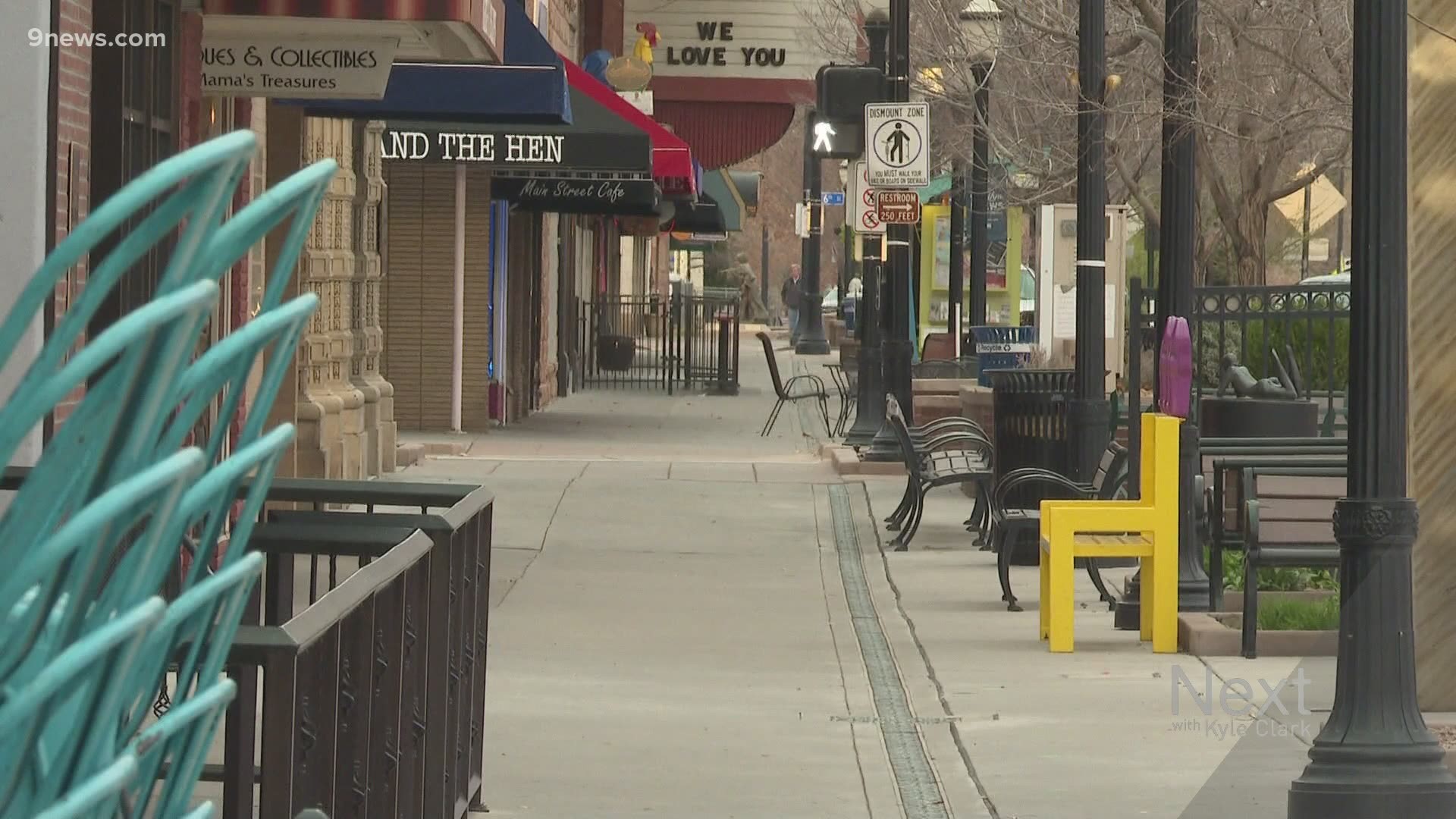DENVER — Millions of state-funded grant dollars for small businesses could be tied to a county enforcing public health orders related to COVID-19.
One of the COVID-19 relief bills being considered by Colorado lawmakers in the special session is Senate Bill 20B-001, which would provide $37 million for small businesses and sole proprietors. Those businesses would have to prove at least a 20% revenue loss since March 26, 2020, due to COVID-19 restrictions.
The money would be distributed through counties through an application process that would be set up in early January, with relief payments made no later than February 12, 2021.
However, there is language in the legislation that would require counties to enforce public health orders for businesses in those counties to qualify for the aid.
Weld County has made headlines in the last few weeks, as commissioners have repeatedly said the county would not enforce the state's dial restrictions, and that the governor and the state would need to enforce rules set by the state, and not by Weld County.
RELATED: Mesa County COVID-19 certification program for businesses serves as model for statewide initiative
RELATED: Longmont mayor will not pursue ordinance to stop Weld County residents from using city's hospitals
The legislation currently states that an eligible county is "in good-faith compliance with the executive orders pertaining to the public health emergency due to covid-19 and all applicable statewide and local public health orders that establish severe capacity restrictions, as determined by the Division in consultation with the Department of Public Health and Environment."
It goes on to say that the county makes "good-faith efforts to enforce or promote compliance with applicable executive and public health orders within the scope of its authority and in consideration of available resources, including engaging law enforcement to enforce executive and public health order violations."
What would be a "good-faith effort to enforce?"
"Agreeing to try and abide by the executive orders and the public health orders," said bill sponsor Sen. Faith Winter, D-Westminster. "To those businesses that are in unincorporated Weld County, I would ask that you call up your commissioners. As every politician knows there's consequences to your decisions."
There is an exception for municipalities that follow the guidelines within counties that do not.
"When you tie money to the following of certain orders, in a state that prides itself on local control, it puts all of that control in the hands of either the Colorado Department of Public Health and Environment -- CDPHE -- or the governor's office," said incoming House Minority Leader Rep. Hugh McKean, R-Loveland.
McKean was encouraged by a different portion of the 28-page bill.
"It's actually on page three, line 10," said McKean.
That section reads: "The general assembly further declares that the executive branch will continue to develop a framework to certify businesses that demonstrate exemplary compliance with public health orders during the pandemic through an evidence-based certification program that is aligned with the state's objectives to contain the COVID-19 virus."
That's a reference to the Mesa County Five-Star Variance Protection Program. A program that Douglas County has considered, to allow businesses to meet certain COVID-19 safety practices so they can expand capacity beyond the county's restrictions.
"I think Mesa County's Five-Star program is the exact place to look. You have a program that encourages the absolute best practice of those businesses. It says that if you follow this and if you can pass an inspection, just to show that you are doing everything you say you are doing, then you're going to be able to operate at that increased capacity," said McKean. "One; it helps that businesses survive. Two; it protects the public's health."
Its inclusion in the bill is not a mandate. The passage of the bill with that section doesn't require the governor's office to do anything by any specific timeframe.
"There are businesses out there that need this framework in place in a week. Now is that the speed at which government moves? Almost never. But, we could get this done in 10 days, two weeks," said McKean.
How much could a business receive under this grant program?
For small businesses that had less than $500,000 in receipts in 2019, those businesses could apply for a relief payment of up to $3,500.
For small businesses that had $500,000-$1,000,000 in 2019 receipts, the relief payment could be up to $5,000.
For small businesses that had $1,000,000 or more in 2019 receipts, the relief payment could be up to $7,000.
SUGGESTED VIDEOS: Full Episodes of Next with Kyle Clark

